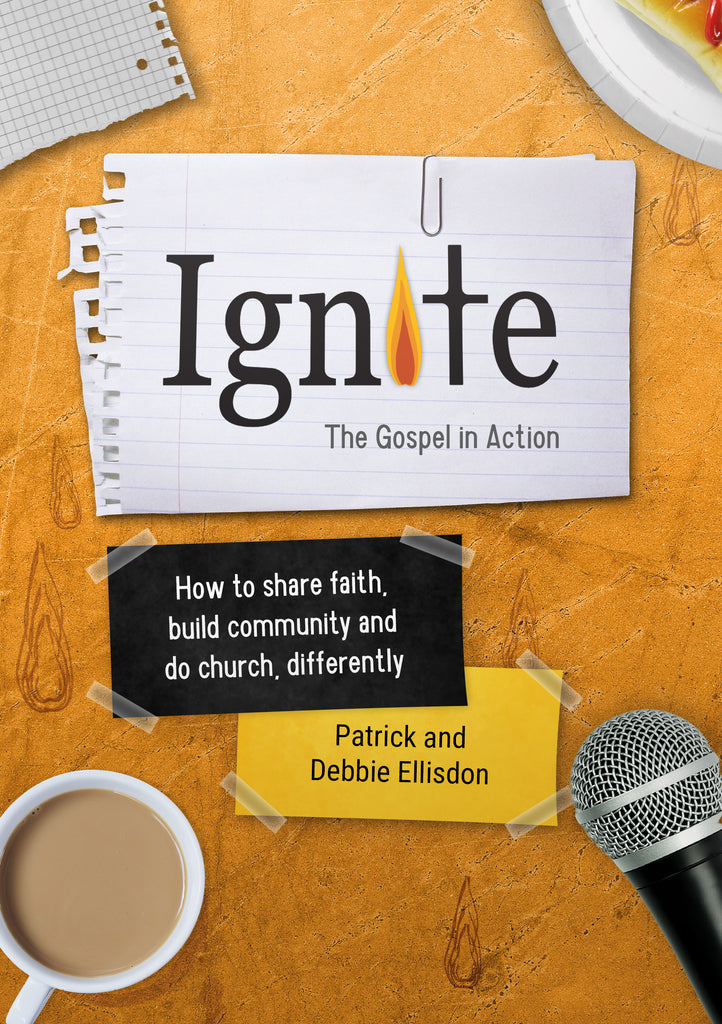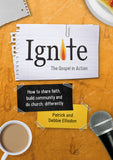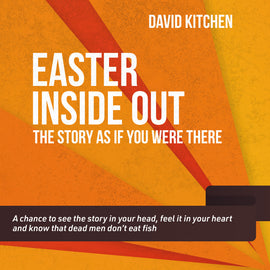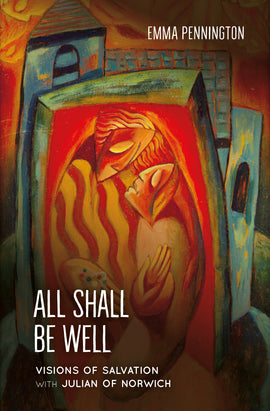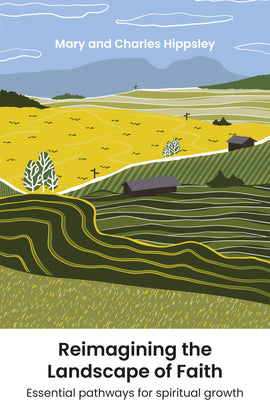Ignite: How to share faith, build community and do church, differently
The Gospel in Action: Pioneering café-style church for those on the margins
God loves to bring people into community, into a knowledge of being loved and valued. Many people, especially those living in marginalised and socially deprived communities, struggle with mainstream church. The Ignite café-church model, pioneered in Canterbury Diocese, is designed to build relationships and share faith with people where they are, in their own communities. Through eating and exploring faith together, Ignite shares the gospel in both word and action, while also supporting people’s essential needs. This book sets out how to plan and run Ignite in your context. It covers building and supporting a team, how best to set up for Ignite and the style in which it should be delivered. Pre-planned ‘running orders’ provide a wealth of weekly material including video clips, table discussions, quizzes, short talks, craft activities, drama and prayer responses.
| Title | Ignite: How to share faith, build community and do church, differently |
| Author | Debbie Ellisdon and Patrick Ellisdon |
| ISBN | |
| Description | God loves to bring people into community, into a knowledge of being loved and valued. Many people, especially those living in marginalised and socially deprived communities, struggle with mainstream church. The Ignite café-church model, pioneered in Canterbury Diocese, is designed to build relationships and share faith with people where they are, in their own communities. Through eating and exploring faith together, Ignite shares the gospel in both word and action, while also supporting people’s essential needs. This book sets out how to plan and run Ignite in your context. It covers building and supporting a team, how best to set up for Ignite and the style in which it should be delivered. Pre-planned ‘running orders’ provide a wealth of weekly material including video clips, table discussions, quizzes, short talks, craft activities, drama and prayer responses. |
| Details |
|
God loves to bring people into community, into a knowledge of being loved and valued. Many people, especially those living in marginalised and socially deprived communities, struggle with mainstream church. The Ignite café-church model, pioneered in Canterbury Diocese, is designed to build relationships and share faith with people where they are, in their own communities. Through eating and exploring faith together, Ignite shares the gospel in both word and action, while also supporting people’s essential needs. This book sets out how to plan and run Ignite in your context. It covers building and supporting a team, how best to set up for Ignite and the style in which it should be delivered. Pre-planned ‘running orders’ provide a wealth of weekly material including video clips, table discussions, quizzes, short talks, craft activities, drama and prayer responses.
Debbie Ellisdon co-leads the Canterbury Diocese Ignite project where she helps to oversee, mentor and encourage Ignite communities across the diocese. She is married to Patrick and has three grown-up children and a dog. She may be a vicar’s wife, but definitely doesn’t enjoy flower arranging!
Patrick Ellisdon is priest in charge of All Saints parish in Canterbury. Through a grant from the Church Commissioners in 2018, he co-led the Ignite project, replicating Ignite in six of the poorest communities across the diocese. He enjoys playing the guitar and reading trashy science fiction novels, and is pretty good at cooking Chinese food!
‘This is a great gift to our churches and communities today. Patrick and Debbie’s passion and experience shine through in this inspiring and practical step-by-step guide to Ignite, and how to build relational and lasting com- munity, through a new and innovative approach to church. This book is a hugely valuable resource.’
The Revd Jonathon Arnold, executive director of The Social Justice Network, Diocese of Canterbury
‘Born in one of the most derived parishes in England, Ignite is much more than a way of doing outreach. People who would not normally come near a church – who might feel themselves to be imposters, even – are often adamant that this is their church. Patrick and Debbie Ellisdon are the practitioners and visionaries who brought Ignite to birth. You will hear their down-to-earth and gentle voices through this book. Ignite is now planted and contextualised in various places around the Diocese of Canterbury, but all of them carry the essential Ignite DNA – a way of being church when “church ways” have sometimes got in the way, so that people who often assume they have no place know that they belong.’
Steve Coneys, mission and growth adviser, Diocese of Canterbury
‘This book is a wonderful testimony of how God can shape a church to minister to those around us; to reveal the love of Jesus to those we often fail to connect with. This book not only tells the story of Ignite but also its thinking, theology and process with lots of wonderful resources to use to share the gospel.’
The Revd Mike Resch, vicar of St Marks in Harrogate and part of the New Wine Leadership Community
‘This book is for our time. When I was archdeacon in Canterbury Diocese, I was on many an occasion moved to tears by the testimonies of those who have come to faith through Ignite services, as outlined in this book.’
The Revd Stephen Taylor, vicar of St Marys Battersea
‘Ignite is not just a study guide as to how to make new Christians; it is the lived experience of those whose lives have been touched by the good news of Jesus Christ – touched through the hospitality of a welcoming community whose members have been willing to share their own experiences of meeting Jesus. The church owes a huge debt of gratitude to Patrick and Debbie Ellisdon, whose passion to share Jesus is evident on every page of this book.’ The Rt Revd Trevor Wilmott, bishop for the Channel Islands and former Bishop of Dover
Church Times 06.06.25 Review by Mike Starkey.
Britain’s coastal poverty is acute. Once thriving seaside resorts are now home to some of the most extreme pockets of deprivation in the country. In 2004, the Revd Patrick Ellisdon and his wife, Debbie, moved to the Cliftonville area of Margate, one of the poorest parishes in Britain.
Guest houses that once accommodated affluent Victorian holiday-makers were packed with people living in acute poverty and struggling with complex needs. The Ellisdons began with listening and relationship-building. They and other church members walked around the parish in twos, meeting local residents and finding out about their lives – in particular their physical needs. These conversations led to new contacts and friendships, and invitations to drinks and snacks in church.
One of the new contacts was a local drug dealer. Before long, church members were regularly sharing bags of chips with the dealer and his customers, and listening without judgement to their life stories. Something remarkable was stirring. A Wednesday Alpha course was started, and a hundred people turned up. When the course ended, around 80 wanted to continue meeting – but few had any experience of traditional church.
The leap in format from an informal, chatty Wednesday evening to formal, structured Sunday morning in church felt daunting. The Ellisdons had a vision of losing the momentum that they had built up. On impulse, they invited people to come back the next Wednesday evening, for food and friendship. They had to think quickly about what might authentic church feel like for these people in this community with these complex needs. In other words they had to ask questions about contextual mission and ecclesiology. The result was a service in an informal café-church style, Ignite, which continued meeting on Wednesday evenings.
The Ignite model was later rolled out across other areas of deprivation in Canterbury diocese, and received funding from the Church Commissioners as a pioneering model of mission. This chatty and practical handbook explains and illustrates the rationale for Ignite.
The first half of the book explores core principles: helping people to respect and value themselves, showing that they are loved and valued by others, and providing a safe space to explore faith. Belonging precedes believing. The second half outlines nearly 30 sample Ignite events, each with its own theme.
Ignite clearly comes from a broadly Evangelical stable, not least in the informality of its worship. But churches of all traditions, struggling to connect with their local community, could find inspiration in the Ignite model – particularly in its rigorously incarnational and relational starting-points.
Reviewed by Mike Starkey, former head of church growth, diocese of Manchester

